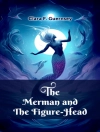In ‘Mark the Match Boy, ‘ Horatio Alger weaves a poignant tale emblematic of his hallmark themes: resilience, ambition, and the pursuit of the American Dream. Set against the harsh backdrop of urban poverty in 19th-century America, the narrative follows the young protagonist, Mark, as he navigates the struggles of life as a street vendor. Alger’s straightforward yet impactful prose captures the innocence and determination of youth while emphasizing the moral virtues of hard work and integrity. This novella is not merely a work of fiction; it serves as a social commentary on the socioeconomic conditions of the time, epitomizing the literary style associated with the ‘Rags to Riches’ genre so prevalent in Alger’s oeuvre. Horatio Alger’s own life experiences profoundly influenced his storytelling. Born into a prosperous family in Massachusetts, Alger became aware of the challenges faced by the less fortunate when he embarked on a teaching career in urban settings. His subsequent struggles with personal crises and the moral imperative to uplift the downtrodden infused his works with empathy and advocacy for social mobility, making him a pioneer in children’s literature. For readers seeking inspiration and a glimpse into the spirit of perseverance amidst adversity, ‘Mark the Match Boy’ is a compelling read that resonates with timeless truths. Alger’s narrative encourages young readers to hold fast to their dreams, portraying the possibilities of transformation through resilience and virtuous living.
Sobre o autor
Horatio Alger Jr. (1832–1899) was a prolific 19th-century American author, most renowned for his rags-to-riches tales of impoverished boys achieving middle-class security through hard work, determination, courage, and honesty. His formulaic stories, with their moral and didactic themes, struck a chord with the American public, making him one of the most popular writers of his time. Alger was born in Revere, Massachusetts, and graduated from Harvard University. Following a stint as a minister, he turned to writing to reach a wider audience with his social ideals. Among his approximately one hundred titles, ‘Mark the Match Boy’ is a notable example, published in 1869 as a sequel to ‘Ragged Dick, ‘ which introduced readers to Alger’s characteristic young protagonists and inspirational storytelling. Alger’s work cannot be divorced from the context of the American Dream ideology of the 19th century, and his narratives often reinforce the belief in upward social mobility through merit and effort. His fiction, although formulaic, has been credited with legitimizing the genre of young adult literature, and his influence on this segment of the literary market persists. Academics have analyzed his narratives as cultural artifacts that reflect the tensions and aspirations of a society transitioning through rapid industrialization and ever-shifting class dynamics.












